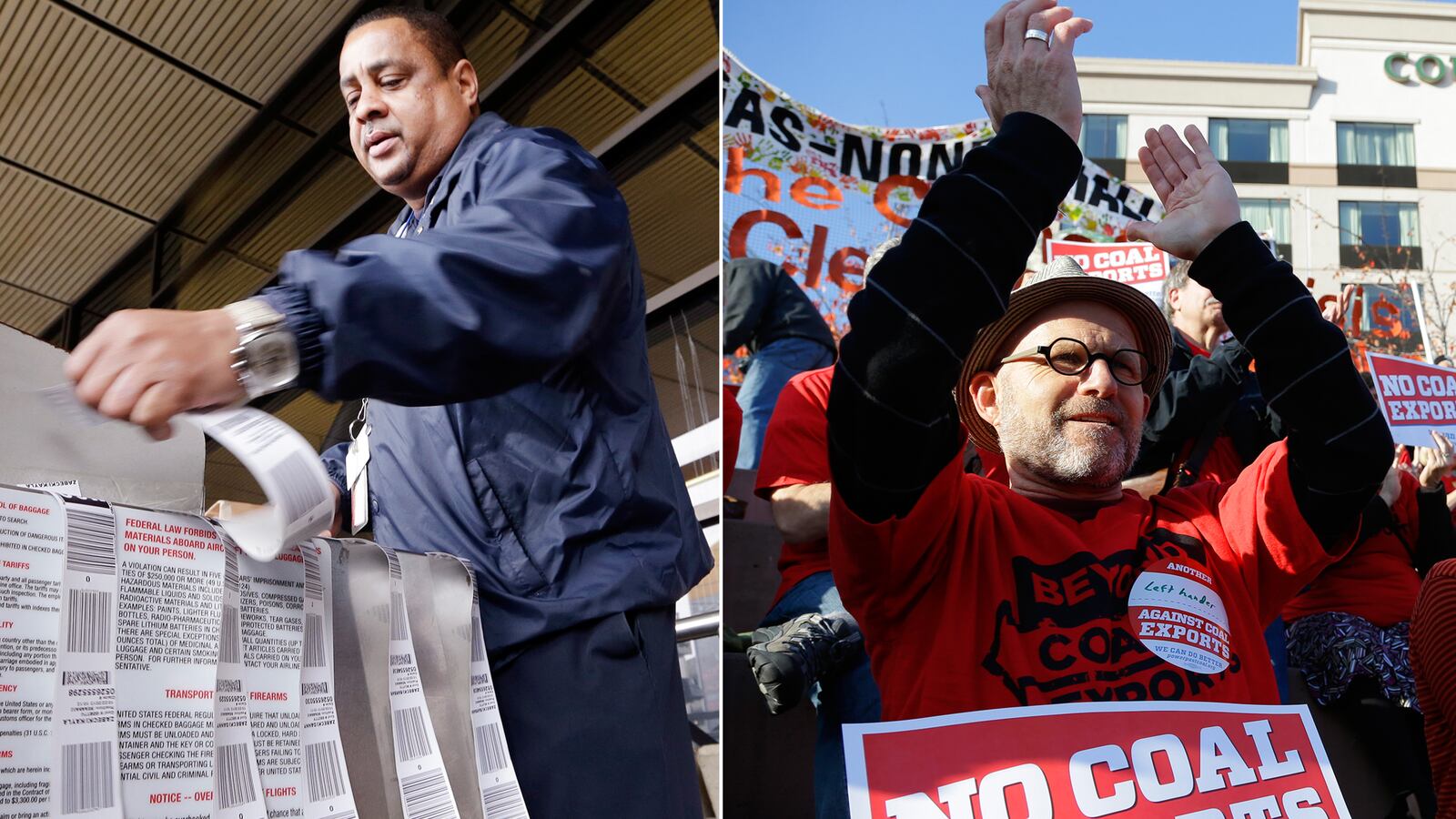The voters of Virginia and New Jersey weren’t the only ones holding some tea leaves in their hands last night. All across the country in obscure races you may never have heard about, voters were sending other messages, and a lot of them were surprisingly liberal.

Let’s start in the small Seattle suburb called SeaTac, where voters approved a minimum wage hike to a whopping $15 an hour for most workers at Seattle’s main airport. Washington state already has the country’s highest minimum wage, at $9.19 an hour, but fifteen bucks is a different order of magnitude: It’s more than twice the federal minimum wage of $7.25. The vote comes as unions and others are trying to whip up support for a big national minimum wage hike. Hard to say how much momentum derives from a few thousand votes in small town, but at the very least the eye-popping figure opens the door to a national conversation that many on the left have been dying to have ever since Barack Obama mentioned a minimum-wage increase in the 2012 State of the Union address (which I don't think he's mentioned at all since).
Also out in Washington, 70 or so miles north in Bellingham, a county council election, of all things, turned into a national referendum on big coal vs. environmentalists. It looks like the green team is winning. Whatcom County is considering the construction of a big coal-export facility, which would be the largest on the West Coast. The county council is nonpartisan, and members have some duties that prevent them from taking outright positions on issues, but there were two factions competing here, and it became clear that one faction backed the plant and the other opposed. Coal and energy companies spent $200,000 on the race, while green groups spent around $500,000. From early returns it looked as if the greens would win.
A mixed result came from Colorado, where, as expected, a school bond issue called Amendment 66 went down to defeat. It sought to hike Colorado’s income tax rate, especially on dollars earned above $75,000, to raise $950 million for education. It always trailed in polls. However, while Coloradans may not want to pay more income tax, they apparently do think stoners should pony up to the government: On the marijuana declared legal last year, there will now be, the voters decided, a 15 percent excise tax, with the money going to support school construction. No results were yet known on the secession vote by 11 of the state’s northern counties, which want to go form their own state.
Working our way back east: The New York-based Working Families Party, a labor-backed third party movement that has exerted influence for two decades in New York politics, scored a big win by backing Democratic mayoral candidate Bill de Blasio in the Big Apple. But it arguably scored an emotionally more important win in Bridgeport, Conn., where it took over the school board. The Bridgeport school board has been at the center of national education wars for the past three or four years, since even before the arrival of Chicagoan Paul Vallas, who’s been a controversial figure in a series of cities where he was expected to be the turnaround artist.
Right now, the Connecticut Supreme Court is considering whether Vallas is even eligible to stay in the job, because he lacks an education degree. Well, the anti-Vallas side, backed by the WFP, won most of the seats on the board Tuesday night.
In New Jersey, Chris Christie may have won big, but the same voters gave him a little slap in the face. During his first term, Christie vetoed a minimum wage increase. But Tuesday, Jersey voters, like those in SeaTac, backed a minimum wage increase for the state, up to $8.25. Combine that with the exit poll result showing that New Jersey’s voters Tuesday would back Hillary Clinton over him for president by 50-43, [] and it places as asterisk alongside Christie’s superficially staggering reelect number.





